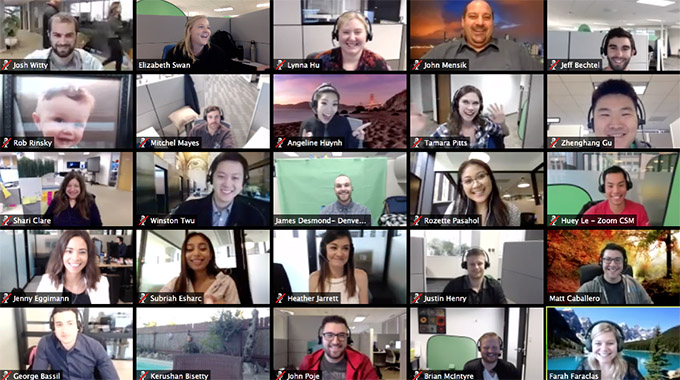
by Katie Langford
Boulder Daily Camera
More than 30,000 University of Colorado Boulder students and their professors have transitioned from traditional, in-person classes to all online classes within a matter of days.
Every CU class switched to remote, online learning Monday, and faculty and students so far say the transition is relatively smooth, though campus leaders reported a few hurdles.
Assistant professor Matthew Burgess started preparing to take all of his classes online days before campus leaders announced the change in a bid to stop the spread of the new coronavirus on campus.
“I was so sure it was coming on Monday of last week that I drafted a plan for both of my classes and sent it to my students on Tuesday,” he said. CU Boulder announced the plan to take all classes online March 11, the next day.
Burgess teaches two courses, Introduction of Developing Environmental Solutions and Sustainable Economies.
While Burgess said he was most concerned about his introductory class because it’s focused on students doing work in class and learning concepts through reading outside of class, so far things are going smoothly. He has two teaching assistants and two lecture assistants for the course. For each class, more than 100 students are on a Zoom call, and Burgess has a separate Google meeting going at the same time so that students can meet with him or an assistant one-on-one if they have questions.
“I would say the overwhelming majority of those students we’ve heard from seem very happy with how it’s being handled,” Burgess said. “A small minority of students are very frustrated with the technical difficulties, and part of that is the fact that they are paying the same tuition for what they see as an inferior product.”
Senior Mallie Bruce, an architecture major, said she was nervous about the switch to remote learning. She had never taken an online class before this week.
Most of her classes focus on hands-on learning, and professors and students are still figuring out what that looks like in an online-only classroom.
Bruce’s professors are also using Zoom calls to have class at regular times, and students can see each other and their instructor.
“Having campus closed has been difficult because we use a lot of computer programs that are really expensive and we use school licensing for and we don’t have access to those,” she said.
But her professors are working to get students remote access to the programs they need, and several of her projects and exams have been postponed while the wrinkles are worked out.
“It’s been really good that the university has given this week as a transition period, and they’ve been understanding,” she said.
In an email to faculty, Provost Russell Moore asked instructors and professors to be flexible with exams, quizzes and graded assignments in light of “significant upheaval” in students’ lives. Faculty could postpone assignments until after spring break or give students the option to make up quizzes or exams they take this week, Moore said.
“This step will ensure that none of our students delay their departure from Boulder solely because they must take an exam or quiz on a particular date the rest of this week,” Moore wrote.
Moore also wrote that there has been some confusion about the transition to online learning, including instructors telling students that their classes will be canceled for the rest of the semester or that they will have to retake labs, studios or workshops next year. None of that is true.
CU Boulder’s Office of Information Technology also reported that some faculty have required hours of oneon- one help or have used “abusive language emails or conversation.”
“Be respectful of the OIT staff members’ time and your colleagues’ similar need for help, and above all, be patient,” Moore wrote to faculty members. “Abusive language toward any member of our staff is unacceptable, no matter one’s level of frustration.”

